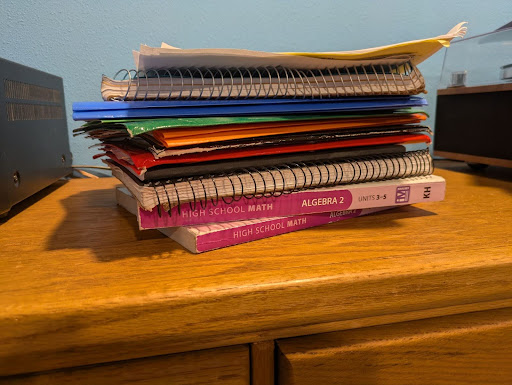High Schoolers continue to have high rates of depression, anxiety, and suicide, along with other mental health issues. These issues stem from school, especially homework, bullying, and social media. The Centers for Disease Control (CDC) has found that over 1 in 3 high school students experience poor mental health. The CDC also states that teen suicide has increased by 12 to 18% compared to pre pandemic levels. (Depression in High School)
Homework
One of the biggest reasons high school students experience these mental health problems is because of the homework. In fact, according to Dr. Cathy Vatterott, who has been researching, writing, and teaching about homework for over 20 years and is considered an international expert on homework, “Students in high-achieving middle and high schools identify homework as the number one school stressor.” She also states how “only 20 to 30 percent of students found their homework “useful or meaningful” (Pope, Brown, & Miles, 2015)”. If such a small number of students feel homework is useful, perhaps only those that feel homework is useful should complete it when they deem necessary.
A SPASH student, Ethan Scholzen, shares this same view on homework. He says “A lot of teachers give too much homework, and they expect kids who go to school for eight hours a day, then go work five hours at their job, and then come home at 10 o’clock, to sit there and do a three-page essay.”
Dr. Vatterott proposes a simple solution to this problem: make homework ungraded. She says “When homework is taken out of the grade, it takes the heat off stressed students.” And regarding the common concern that students will not do the homework, she says “Contrary to the myth that “they just won’t do it,” not grading homework empowers students to self-assess and to complete only those tasks they actually need to do to demonstrate mastery.”
Bullying
Another of the biggest reasons high school students experience these mental health problems is because of bullying. The Newport Academy, which is a large group of doctors who help children and adolescents that struggle with depression, anxiety, trauma, and other mental health issues, says that “Research has found that bullying and depression in school are often related. Victims of bullying in school are at greater risk for depression and suicide.” Bullied students are indeed at a much higher risk for suicide, dying to suicide up to 320% more often than students that were not bullied, according to the CDC.
The Newport academy also talks about the increase in suicide rates following the COVID-19 pandemic, saying “teen suicides increased by 12–18 percent as compared to pre-pandemic levels. … researchers concluded that bullying in school was the most likely cause for the rise in teen suicides.”
A subsection of bullying is Cyberbullying. Cyberbullying is being bullied or threatened online. Cyberbullying can result in even worse mental health problems than in person bullying, and a study by the US National Institutes of Health found “victims of cyberbullying showed more signs of depression than other bullying victims.” (Depression in High School). This can weigh down on a student and make already difficult school even more difficult and stressful.
Social Media
Social Media can also cause mental health problems for high school students. According to The Newport Academy, “Focus on screens and social media causes damage to relationships, education, and extracurricular activities. Thus, it can contribute to teen depression, as well as ADHD, self-harm, body image issues, anxiety, another mental illness.”
The Newport Academy also speaks about how Social Media causes teens to have unrealistic expectations for themselves because they are constantly comparing themselves to others, saying “Social media is a primary source of anxiety and pressure for adolescents. Teens become depressed when they compare themselves to their peers. Moreover, they feel they must uphold perfection on social media.”
Winston Worzella, another SPASH student, believes the exact same thing, claiming “Social media can bring a lot of stress because you can’t compare yourself to other people who you see online”.
Conclusion
The thing that makes all of this even worse is that according to The Newport Academy 60 to 75% of teens with depression never received mental health treatment such as therapy or counseling. And even among those who do receive care, many do not receive consistent care, and only 30% of teens with severe depression received consistent care.
This could easily be fixed by providing government funded mental health treatment programs so that they are more accessible.
There are some ideas for solutions, though. There are the previously stated ideas of making homework ungraded and government funded mental health treatment programs, but there is more. These include limiting social media access for young people, implementing a stricter bullying policy, coordinating assignments so that students are not overscheduled, and getting more high quality sleep. So this leaves me with one question. What do you think should be done about the mental health issues students face?































































